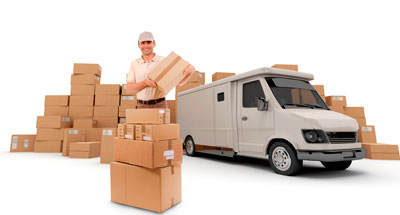Courier overview:
A courier business It may be a low investment startup. You can transport important documents, flowers, small packages or even biological samples. The biggest problem that separates this private company from large delivery companies like UPS and FedEx is same-day delivery service and odd-hour deliveries. While larger companies can guarantee next-day service, smaller couriers tend to operate within less than 24 hours. This may require working later in the day to deliver all of your packages. One of the keys to success in this industry is on-time delivery and careful handling of packages.
Considerations before starting a Courier business:
There are a few things to consider when starting out:
 First: think about the location. Small towns and rural areas may not need any courier service.
First: think about the location. Small towns and rural areas may not need any courier service.- Second: Think about the type of service you would like to start. Some couriers only collect and deliver medical packages and, for example, court documents.
- Finally: think about the size of the vehicle you will need. Larger vehicles can carry larger packages, but require more fuel and are more difficult to park.
Courier Skill Set:
- Good driving skills
- Good sense of direction and navigation
- The ability to lift heavy packages
- Loading and organizing packages that can be delivered according to the route
- Possibility of scheduling deliveries and collections
- Good communication skills
- Operating and parking a vehicle in high traffic areas
- Use GPS
- Time management
- Shipment management
- It must be highly organized
- Ability to meet strict deadlines
- List of common business skills
Approximate daily hours necessary to carry out a courier company:
General hours of operation:
While most deliveries are made within normal hours of 9:00 am to 5:00 pm, other delivery jobs may require delivery at any time of the night.
Before and after business hours:
Plan for about an hour of paperwork, inspection, and vehicle cleaning before or after each day.
Consideration of Employee and Work During the Initial Phase or in the Future:
- Drivers
- Mechanics
- Shippers
- Common Staff Positions Needed to Run Some Businesses
Licenses for courier business:
See our page on licenses and permits
Approximate minimum start-up cost of the courier service:
The average start-up cost can be very small if you already have a reliable vehicle and GPS; however, it can cost several thousand dollars for a new vehicle, GPS, and dispatch equipment. Another cost factor is commercial insurance. The entire cost depends on the type of vehicle you want, the insurance rates in your area, as well as whether you will be operating from your home or office.
Equipment, supplies and services to open a Courier business:
- Reliable vehicle (s)
- Log books
- Moving cart (possibly)
- Uniforms
- GPS or quality map
- Messaging software
- Expedition team
- Storage area
- Skates and shelves for storage
- Essential office equipment
Monthly expenses to consider:
- Fuel
- Vehicle insurance
- Cargo Insurance
- List of common business skills
Special requirements:
Advantages and disadvantages of a Courier or Courier business:
Advantage:
- Service is in high demand in many areas
- In some cases, you can set your own hours and limitations
- Low start-up cost.
- Low operating costs.
- Very profitable with the right market.
Disadvantages:
- Pick up at odd hours.
- Some jobs may require you to travel outside the home.
- Long time on the road.
- High vehicle and fuel costs.
- Vehicle maintenance cost.
- Increased risk of accidents.
- Most likely, you will have to deal with traffic jams on a daily basis.
- It can be difficult to have a stable business unless you can get a few contracts that have consistent deliveries.
Type of Customers You Need to Attract as a Courier:
According to Messenger Courier Association of America (MCAA), clients can include biomedical laboratories and other medical facilities, financial companies such as banks, and law firms. Other customers may be manufacturing plants that require rush deliveries, as well as other types of establishments that need fast deliveries.

